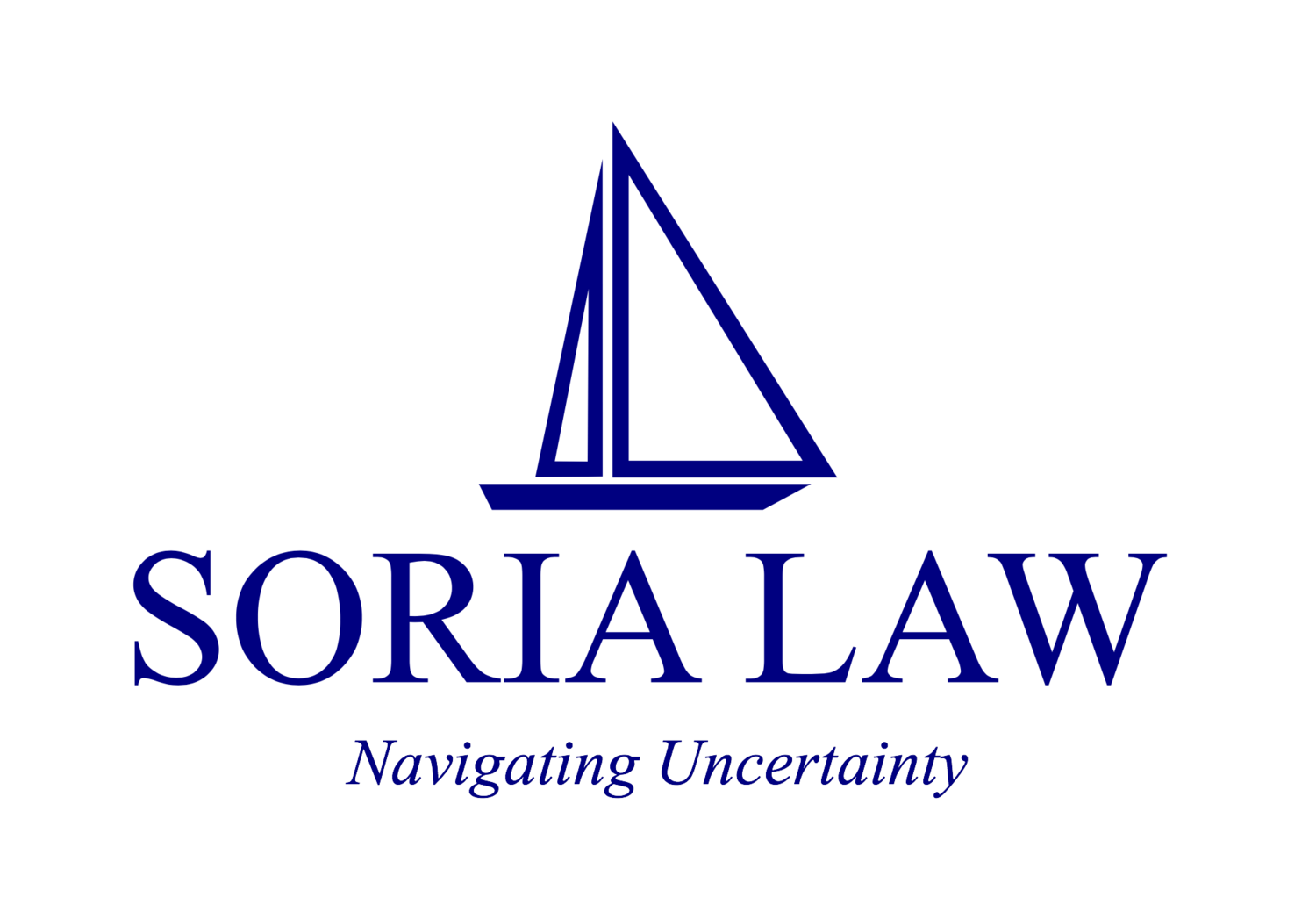Public Charge Changes
What do you need to know?
New Rule Implements Totality of the Circumstances Test vs. Affidavit of Support
and Includes Additional Public Assistance
Have your adjustment application postmarked by October 14, 2019!
There has been much discussion in the news about something called public charge. Public charge is a ground of inadmissibility under the Immigration and Nationality Act (INA 213A), which can make applicants for adjustment of status inadmissible to the United States. Although the law itself is not changing, the regulations implementing it will most likely change on October 15th, 2019. This means that in order to have the former regulations apply to your case, you need to have your application postmarked by October 14, 2019. Soria Law, can assist you in determining if you are likely to be considered a public charge and how you can submit a strong application to avoid this finding.
Current regulations define a public charge as someone who is likely to become primarily dependent on the government to support themselves.
The new rule will define a public charge as an immigrant who receives one or more public benefits . . . for more than 12 months in the aggregate in a 36 month period.
What are the new benefits that will count in the “public benefits” portion?
Medicaid (excluding emergency services, school-based benefits to children, medicaid benefits used by immigrant children under 21 years of age, medicaid benefits used during a pregnancy and 60 days after the birth of the child).
Food Stamps (SNAP)
Section 8 Housing Assistance and Project Based Rental Assistance
Subsidized Housing
Long-term Care (previously included)
Cash assistance: SSI, TANF, General Assistance (previously included)
BENEFITS USED BY FAMILY MEMBERS DO NOT COUNT!
EARNED CASH BENEFITS AND MEDICARE DO NOT COUNT!
Exclusively state and locally funded programs (such as state housing and state health insurance), do not count, but state, local, and tribal cash-assistance programs will count.
Benefits used prior to October 15, 2019, will not count. Only those received after October 15, 2019, will count.
EXEMPTIONS TO PUBLIC CHARGE RULES:
Many individuals are not subject to the rules of public charge. These include the following individuals:
Refugees and Asylees (and at related adjustment);
Special Immigrant and Juvenile Status (and at related adjustment);
U Non-immigrant status (and adjustment under INA 245(m) and INA 245(a) while in valid U status);
VAWA Self-Petitioners (and at related adjustment);
T Non-immigrant status (and adjustment under INA 245(l) and adjustment under INA 245(a) with pending prima facie T application or while in valid T status);
TPS Applicants; and
Many others.
***Although there is no public charge issue when renewing DACA, if you are a DACA recipient who is adjusting through a family member or an employer, the public charge inadmissibility ground will apply to you!
In the past, if an applicant filed an affidavit of support which demonstrated that the sponsor had an income of 125% of the poverty guidelines, then an applicant was deemed to have demonstrated that they would not become a public charge. Now, if the affidavit of support is considered sufficient, USCIS can still consider the “likelihood” that the sponsor will actually provide this support to the applicant and also use other factors listed below to determine under a totality of the circumstances, whether the applicant will become a public charge.
Totality of the Circumstances Test Factors:
Age
Health
Financial Resources
Family Status
Education and Skills
It is critical that you partner with an immigration attorney to see how these new rules will impact your case, and if they will do so in a negative manner, partner with an immigration attorney to get your applications filed before October 14th!
Please contact Soria Law at 561-318-3600, to see how these new rules will impact your application.

